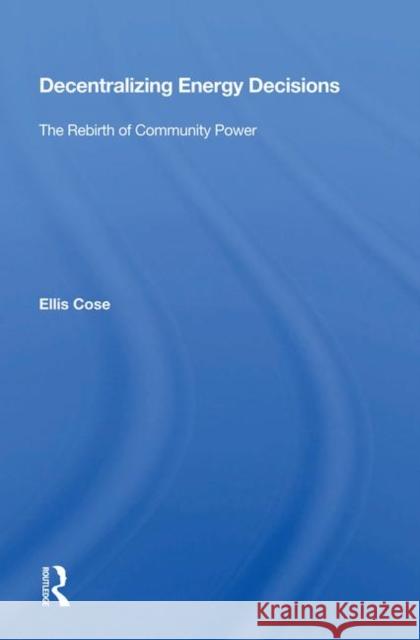Decentralizing Energy Decisions: The Rebirth of Community Power » książka
Decentralizing Energy Decisions: The Rebirth of Community Power
ISBN-13: 9780367017132 / Angielski / Twarda / 2019 / 152 str.
Decentralizing Energy Decisions: The Rebirth of Community Power
ISBN-13: 9780367017132 / Angielski / Twarda / 2019 / 152 str.
(netto: 718,58 VAT: 5%)
Najniższa cena z 30 dni: 654,86
ok. 16-18 dni roboczych.
Darmowa dostawa!
Decision making about energy has come to epitomize a larger struggle taking place in U.S. society--a struggle for control over individual destiny, economic resources, and the shaping of society itself. A host of ideologies has been spawned, new federalism and new populism among them. Many activist groups argue that making decisions about resources can be a first step in helping people gain control of their lives. Focusing on the issues surrounding the control of energy and discussing the limitations and advantages of dealing with the energy problem at the local level, the author examines the proposition that granting control over decision making to cities, states, or regions rather than to the federal government can positively affect public confidence, as well as result in more efficient energy planning. Mr. Cose discusses the various interpretations of decentralization; the relationship between decentralization and small-scale technologies; the overlapping and opposing interests of governments, consumers, and corporations; and the extent to which local governments and political structures are prepared to deal with an issue that is traditionally outside of their sphere. The author supports his analysis by looking at specific municipal governments and their attempts, successes, and failures to respond to the energy crisis. He also analyzes the particular problems of community projects. Throughout the book he comments on the effect that Reagan administration policies have had on decision making about energy at all levels of government nationwide.











